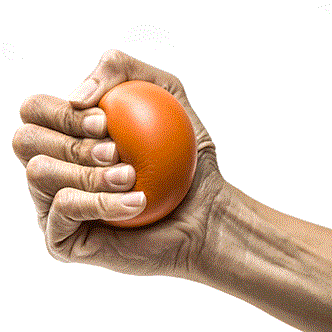
The stronger you can squeeze an object in your hand, the lower your risk of heart disease and death, according to a large, international study published in The Lancet.
First started in 2003, the PURE (Prospective Urban-Rural Epidemiology) study follows adults from all regions of the world to better understand factors related to obesity and chronic health conditions such as heart disease, diabetes and cancer. Among the many risk factors measured in the study was grip strength—a measure of how hard a person can squeeze an object in his or her hand. Not only is grip strength simple and inexpensive to measure, it’s a good indicator of aging and overall health. Past studies have linked a weak grip to increased risk for death, but none have tested this association in a diverse, international population.
Between 2003 and 2009, more than 142,000 adults between 35 and 70 years old enrolled in the PURE study. Participants came from a total of 17 different countries, ranging from low-income countries like Pakistan and Zimbabwe to high-income countries including Canada and Sweden.
Upon enrollment, participants completed a questionnaire that collected information on factors like education, employment, physical activity, diet and overall health. Study personnel also measured the blood pressure and grip strength of each individual. For four years, researchers then tracked key health outcomes of participants, including heart disease, heart attack, stroke and death.
After analysis, researchers found that the greater the grip strength, the lower participants’ risk of heart attack, stroke and death. Grip strength was measured in kilograms (kg), with average measures ranging from 17.2 to 49.9 kg. Investigators estimated that for every 5 kg decline in grip strength, participants had 16% higher risk of death, 7% greater risk of heart attack and 9% greater risk of stroke.
Interestingly, this association was the same among participants in all countries, suggesting that the link between grip strength and health outcomes is not strongly influenced by factors like income and education. Researchers also noted that grip strength predicted risk of death better than systolic blood pressure (top number in a blood pressure measurement).
Findings are encouraging, as grip strength is a simple and affordable way to assess health. In low-income countries where more elaborate health tests are unavailable, grip testing may be an easy way to identify adults at increased risk for heart disease and death. Identifying patients with increased health risks can help motivate patients to seek treatment and make healthy lifestyle changes.
The question, however, is whether improving grip strength will help reduce risk for heart disease and death. We know that poor grip strength may indicate aging or underlying health conditions that weaken the muscles. Experts now encourage future research to determine whether helping weaker patients increase their grip strength will improve outcomes.